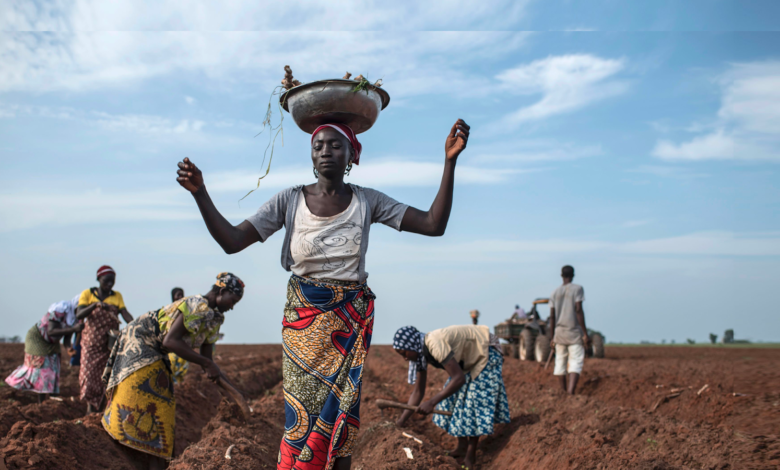Millions More In Nigeria’s Northeast, Northwest At Risk Of Food Insecurity
The ongoing conflict, climate change, and rising prices of food have been identified as the key drivers of this “alarming trend,” the United Nations Children’s Fund (UNICEF) says.

An estimated 9 million people living in conflict-affected areas of the Northeast and Northwest zones are at risk of going hungry in the upcoming lean season, the United Nations Children’s Fund (UNICEF) predicts.
The organisation says that the ongoing conflict, climate change, and rising food prices have been identified as the key drivers of this “alarming trend.”
The lean season is the period of the year when food stocks are used up, and food prices skyrocket. In Nigeria, the lean season lasts from May to August.
In April 2022, projections from Cadre Harmonise (CH), an organisation that shares information on the risks of worsening food security, stated that over 1.4 million people were at risk of acute food insecurity in Borno, Adamawa, and Yobe (BAY) states of the northeast where insurgent groups still attack.
By the end of the year, nearly 3 million more people in the BAY states were said to have been hit by acute levels of food insecurity which was worsened by the flooding disasters during the rainy season that lasted from June to Oct. 2022.
According to the National Emergency Management Agency (NEMA), the widespread flooding damaged over 70,000 hectares of farmlands, reducing yearly harvests and increasing the risk of food insecurity for families across the country.
In the northwestern states of Katsina, Zamfara, and Sokoto, the figure of people at risk of going hungry is projected to increase to 4.3 million from the 2.9 million people who were food insecure in 2022.
Armed violence by terror groups and kidnapping have exacerbated the situation in the region.
Children more at risk
UNICEF warns that children are more vulnerable to being food insecure in the coming lean season.
Mr Matthias Schmale, the UN’s Humanitarian Coordinator for Nigeria, noted that “the food security and nutrition situation across Nigeria is deeply concerning. I have visited nutrition stabilisation centres filled with children who are fighting to stay alive.”
Over 5 million children living in Borno, Adamawa, Yobe, Katsina and Zamfara are already experiencing acute levels of hunger and malnutrition, the organisation says, warning that “there is a serious risk of mortality among children attributed to acute malnutrition.”
The organisation adds that in the BAY states alone, the number of children suffering from acute malnutrition is expected to increase from 1.74 million in 2022 to 2 million in 2023.
In the northwest region, malnutrition is already threatening the lives of thousands of children. In 2022, Medecins San Frontieres/Doctors without borders teams working in partnership with Nigerian health authorities treated more than 50,000 children with acute malnutrition, including 7,000 who required hospital care in five states.
The UN urges the Nigerian Government and other humanitarian actors to urgently implement mitigation measures to save lives and prevent a potentially catastrophic food security and nutrition situation.
“Support for vulnerable families across the country is needed today, not tomorrow,” the UN states.
Support Our Journalism
There are millions of ordinary people affected by conflict in Africa whose stories are missing in the mainstream media. HumAngle is determined to tell those challenging and under-reported stories, hoping that the people impacted by these conflicts will find the safety and security they deserve.
To ensure that we continue to provide public service coverage, we have a small favour to ask you. We want you to be part of our journalistic endeavour by contributing a token to us.
Your donation will further promote a robust, free, and independent media.
Donate HereStay Closer To The Stories That Matter




